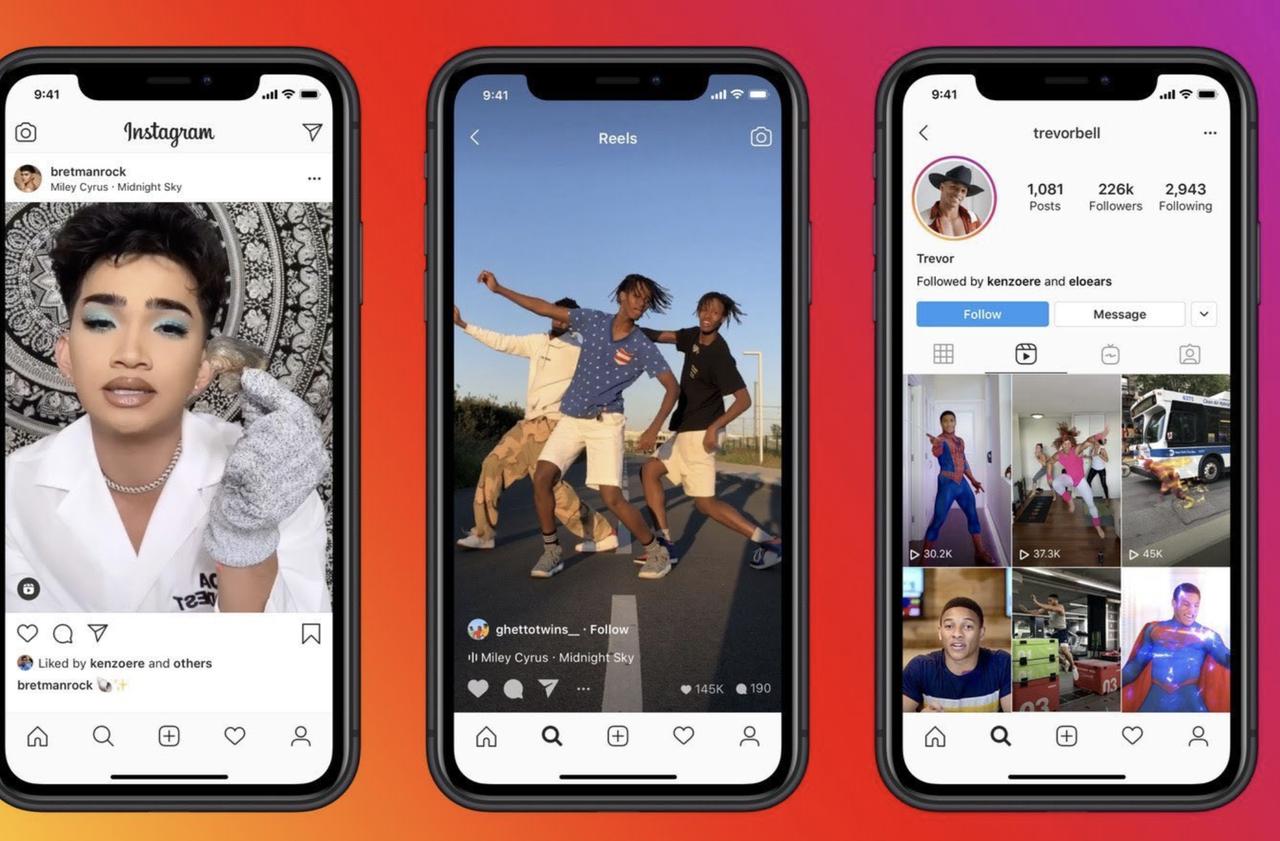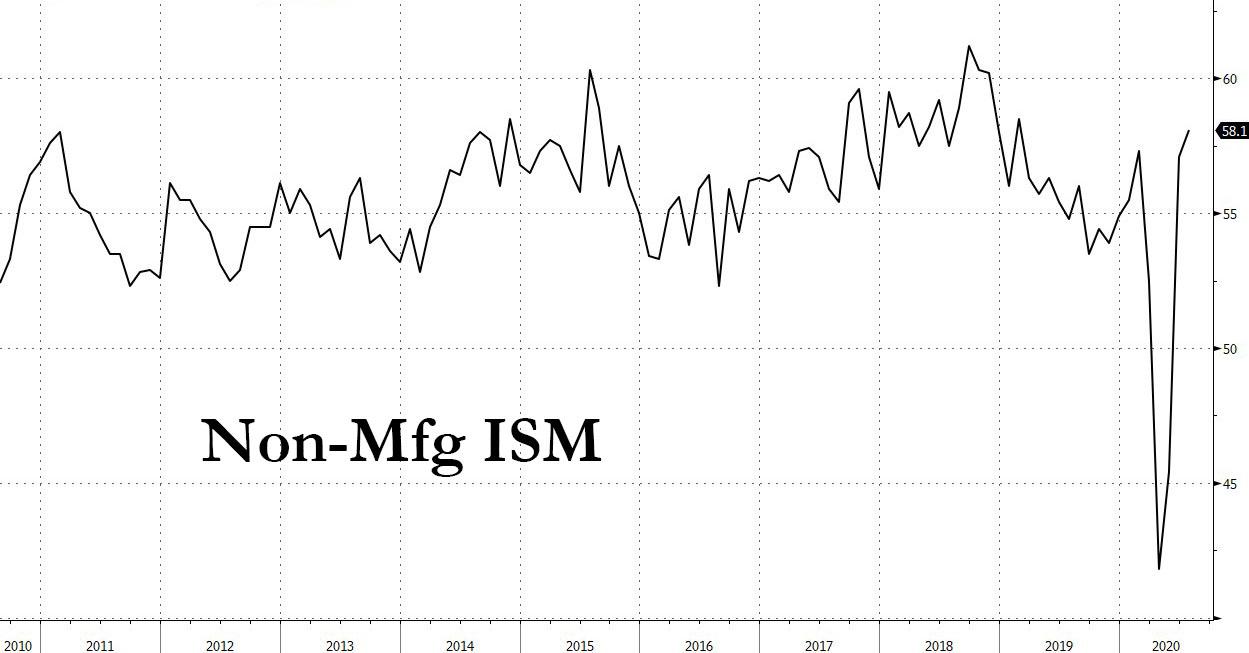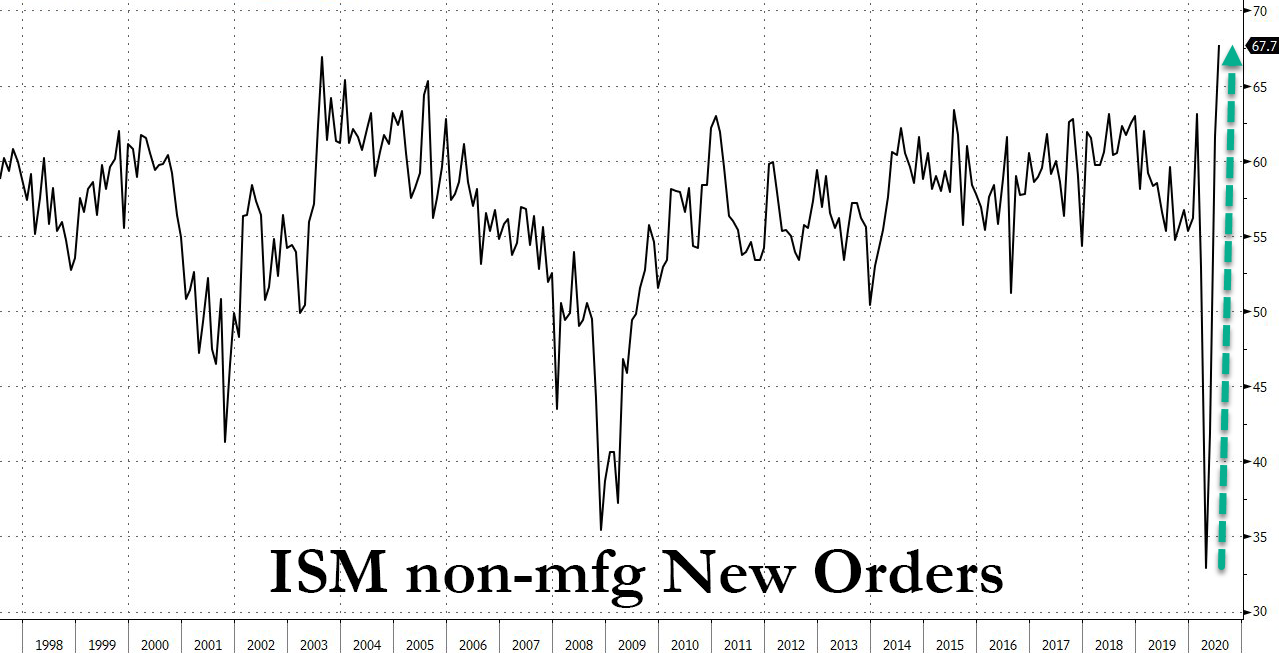After months of casting suspicion on the whole concept of mail-in voting, the president is suddenly behind it… for states where he has a stronghold. “In Florida I encourage all to request a Ballot & Vote by Mail!” Donald Trump tweeted on Tuesday afternoon. “Whether you call it Vote by Mail or Absentee Voting, in Florida the election system is Safe and Secure, Tried and True,” the president opined on social media.
Meanwhile, his campaign is suing to stop the state of Nevada from expanding its mail-in voting protocol.
The lawsuit was filed late yesterday in the U.S. District Court for the District of Nevada on behalf of Donald J. Trump for President Inc., the Republican Party of Nevada, and the Republican National Committee. It comes in response to Nevada’s AB4, which was signed into state law on Monday.
AB4 says registered voters will automatically be sent a mail-in ballot for the upcoming general election and any subsequent election that takes place during an official “state of emergency or declaration of disaster.” It also contains several minor, related provisions meant to makes this process easier.
Making it easier and safer for people to vote in November doesn’t seem like it should be a controversial proposition. But the bill split Nevada legislators along party lines and has now riled up Trump’s 2020 presidential campaign.
The campaign’s lawsuit alleges that “major or hasty changes confuse voters, undermine confidence in the electoral process, and create [an] incentive to remain away from the polls.” But the new law—which doesn’t cancel in-person voting but simply expands voters’ options—was passed with the exact opposite aim in mind, after June primaries in Nevada saw folks who wanted to vote being forced to wait in line for hours. Now, voters won’t be forced to choose between risking their health or wasting hours in line to cast a vote.
The lawsuit also objects to AB4’s stipulation that the number of in-person voting locations required in a given county is tied to the population of that county.
Trump told reporters on Monday that the U.S. Postal Service couldn’t handle mail-in voting.
On Wednesday morning, Trump once again urged Florida residents to vote by mail while saying Nevada shouldn’t do it. He has not specified what special postal tricks Florida mail carriers supposedly know that Nevada’s do not.
But Nevada went for Clinton in 2016, and Florida went for Trump, so that might be one clue. The president has also criticized the prospect of expanding mail-in ballot access in California, a reliably blue state.
FREE MINDS
“There is a widening gulf between American aspirations for and assessments of the news media,” reports the Knight Foundation in an introduction to its latest “Trust, Media and Democracy” report. Over the past several years, the foundation’s studies have seen Americans offer “increasingly polarized judgments about the news media and how well it is fulfilling its role in our democracy.”
While a lot of people say they see political bias in the media they consume, they’re confident in their own ability to see through it while worrying (but of course) that others don’t have the same powers of discernment:
Most Americans see bias in their go-to news source; 20% see “a great deal” and another 36% see “a fair amount” of bias in the news source they rely on most often.
Given the choice, however, more Americans say they are concerned about bias in the news other people are getting (69%) than say they worry about their own news being biased (29%).
Surveys for the report were conducted pre-pandemic (from last November through mid-February 2020) and involved more than 20,000 U.S. adults.
ELECTION 2020
August 4 primary highlights. Results are still coming in from primary elections held yesterday in Arizona, Kansas, Michigan, Missouri, and Washington state. A few notable results so far:
• The fate of Democratic Rep. Rashida Tlaib (D–Mich.)—part of the far-left “squad” that has been making a big splash on Capitol Hill the past two years and one of two Muslim women in Congress—is still undetermined. “Tlaib, 44, was leading in early returns. But a large number of votes had still not been counted and the winner was not expected to be determined until later Wednesday,” reports the Associated Press this morning.
• The fate of Maricopa County, Arizona, Sheriff Joe Arpaio is (sigh, somehow) still up in the air, too. (Arpaio background here.)
• Cori Bush, a nurse and Black Lives Matter activist, looks to have defeated 10-term incumbent Rep. William Lacy Clay in Missouri’s Democratic primary, with 72,812 votes so far to Clay’s 68,201. Clay’s “family has represented the District 1 House seat since the late ’60s,” says The St. Louis American. The paper points out that “the seat is overwhelmingly Democratic, and normally the Democratic nominee is advanced as the winner in November.” If so, that would make Bush Missouri’s first black female representative in Congress.
• Former Kansas Secretary of State Kris Kobach lost in the Republican primary for the U.S. Senate seat he was vying for. “In the past several weeks, the race tightened between the two after a super PAC with links to Democrats spent $5 million boosting Kobach and slamming [his opponent, Rep. Roger] Marshall,” notes USA Today.
FREE MARKETS
ByteDance, the Chinese company behind TikTok, says it may be moving its company headquarters to London, amid Trump’s attempt to either ban the short-video app or force ByteDance to sell TikTok to Microsoft. “ByteDance is committed to being a global company,” a spokesperson told Reuters. “In light of the current situation, ByteDance has been evaluating the possibility of establishing TikTok’s headquarters outside of the U.S., to better serve our global users.”
QUICK HITS
• At least 100 people are dead and thousands wounded after an explosion at the port in Beirut, say Lebanese authorities. “Lebanese President Michel Aoun said Tuesday’s explosion was caused by 2,750 tonnes of ammonium nitrate—used as a fertilizer in agriculture and as an explosive—that had been stored unsafely in a warehouse,” reports CBS News.
• “India Johnson, 26, and Yasmeen Winston, 25, planned to take their infant sons to splash in the fountains at the World War II Memorial on Thursday afternoon. But before they could climb out of their car, which they’d parked on Constitution Avenue near the White House, a marked Secret Service cruiser drove into their left front bumper” and then agents swarmed and detained them, Winston told The Washington Post. “The women said they were told the vehicle had been reported stolen, but Johnson provided proof she was the owner and said she had never reported it stolen.”
• Masks were contentious a century ago, too.
• Data from Yelp shows more than 2,800 New York City businesses have permanently shut down since March 1 of this year.
• A new HBO documentary called The Swamp looks at Republican Reps. Thomas Massie (Ky.), Matt Gaetz (Fla.), and Ken Buck (Colo.).
• “The husband of Los Angeles County Dist. Atty. Jackie Lacey has been charged with multiple counts of assault in connection with a March incident recorded on video in which he waved a gun at protesters outside the couple’s Granada Hills home,” reports the Los Angeles Times.
• Conor Friedersdorf explains the latest free speech controversy in academia.
• New York legalizes liquor-infused ice cream.

from Latest – Reason.com https://ift.tt/2PneDh4
via IFTTT







 And so, as Susan Douglas put it in
And so, as Susan Douglas put it in 





